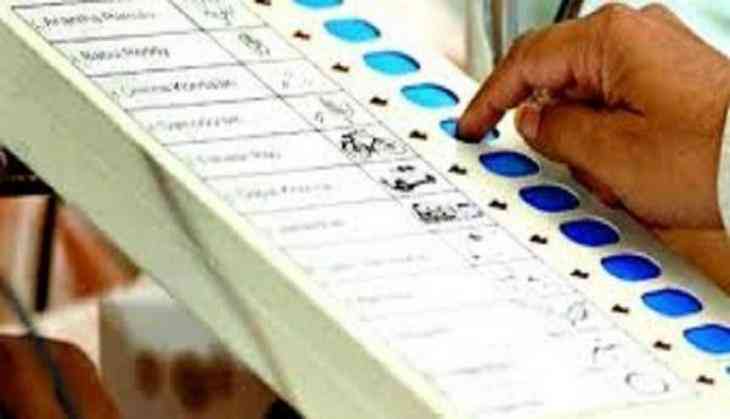
An Electronic Voting Machine is "information" under the Right to Information Act and can be demanded by an applicant from the Election Commission of India on a payment of Rs 10, the Central Information Commission has ruled.
This implies the Election Commission has to respond to an RTI application seeking the EVM either by providing it or refusing it under exemption clauses in the Act. But that also can be contested before the CIC, the highest adjudicating authority in RTI matters.
Deciding a unique RTI application, through which the applicant had sought an EVM from the Election Commission, Chief Information Commissioner Sudhir Bhargava recently said the machine was covered under the definition of "information" and can be demanded from the ECI.
The Election Commission had rejected the application saying the EVMs held by it do not come under the definition of "information".
The applicant, Rajaak Khan Haider, approached the CIC with a strong argument that as per Section 2(f) and 2(i) of the RTI Act, the definition of 'information' and 'record' also includes 'any model or any sample' held by a public authority, calling the rejection as wrong.
Section 2(f) of the RTI Act defines 'Information' as any material in any form, including records, documents, memos, e-mails, opinions, advices, press releases, circulars, orders, logbooks, contracts, reports, papers, samples, models, data material held in any electronic form and information relating to any private body which can be accessed by a public authority under any other law for the time being in force.
The Election Commission representative admitted that model and samples of the machines are available with it but the same are only kept for training purpose, and not saleable to the general public.
Tendering unconditional apology for rejection, the Election Commission representative agreed that it was wrong on its part but reiterated that EVMs did not come under the definition of information, an argument rejected by Bhargava.
"The EVM which is available with the Election Commission in a material form and also as samples, as admitted by the respondent (ECI) during the hearing, is an information under the RTI Act," the CIC ruled.
In the next sentence, however, the Commission tried to nip in the bud any aspiration of accessing the machine underlining the second contention of the EC that the software installed on these machines is an intellectual property of a third party, the disclosure of which would harm its competitive position.
The CIC, however, did not give any view whether it was upholding or rejecting the EC's position on commercial confidence leaving a grey area which can be pursued further by any applicant.
An information can be denied by a public authority if it attracts any exemption clauses listed in the RTI Act which also exempts information pertaining to commercial confidence or intellectual property from disclosure.
One of the clauses Section 8(1)(d) exempts information including commercial confidence, trade secrets or intellectual property, the disclosure of which would harm the competitive position of a third party, unless the competent authority is satisfied that larger public interest warrants the disclosure of such information.
The issue of larger public interest in the wake of allegations of EVM tampering was not mentioned in the order.
The ECI argument calling machine having propriety software was noted by the CIC but he limited his order, saying the rejection of application was "erroneous" by the ECI and a fresh reply should be sent to the applicant as per the RTI provisions.
"The commission also notes that as per the respondent (ECI), the software installed in the EVM is an intellectual property of a third party, the disclosure of which would harm the competitive position of the third party concerned," he said but did not uphold or reject the argument.
Several opposition leaders have raised "doubts" over EVMs and their functioning before the Election Commission.
The opposition parties had sought moving back to the ballot paper, but after the EC made it clear there was no going back.
In a meeting with the ECI recently, Opposition leaders demanded the poll panel ensure that 50 per cent of EVM results are crosschecked with voter-verifiable paper audit trails (VVPAT) before declaration of results in the upcoming Lok Sabha elections.
The leaders had told the Election Commission the people of the country doubted the efficacy of EVMs and this issue needs to be redressed.
-PTI


